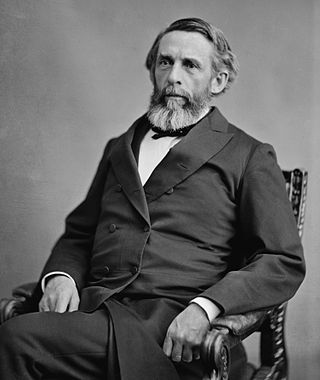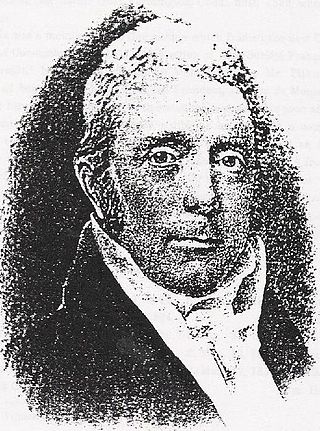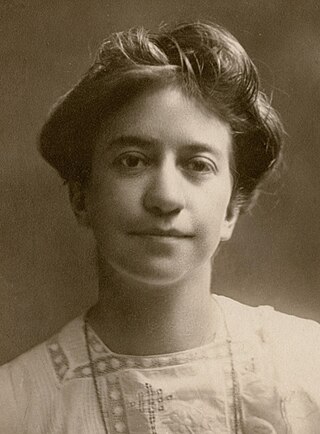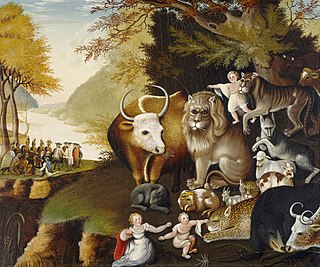
Pacifism is the opposition or resistance to war, militarism or violence. The word pacifism was coined by the French peace campaigner Émile Arnaud and adopted by other peace activists at the tenth Universal Peace Congress in Glasgow in 1901. A related term is ahimsa, which is a core philosophy in Indian religions such as Hinduism, Buddhism, and Jainism. While modern connotations are recent, having been explicated since the 19th century, ancient references abound.
World government is the concept of a single political authority with jurisdiction over all of Earth and humanity. It is conceived in a variety of forms, from tyrannical to democratic, which reflects its wide array of proponents and detractors.
Anarcho-pacifism, also referred to as anarchist pacifism and pacifist anarchism, is an anarchist school of thought that advocates for the use of peaceful, non-violent forms of resistance in the struggle for social change. Anarcho-pacifism rejects the principle of violence which is seen as a form of power and therefore as contradictory to key anarchist ideals such as the rejection of hierarchy and dominance. Many anarcho-pacifists are also Christian anarchists, who reject war and the use of violence.

The American Anti-Imperialist League was an organization established on June 15, 1898, to battle the American annexation of the Philippines as an insular area. The anti-imperialists opposed forced expansion, believing that imperialism violated the fundamental principle that just republican government must derive from "consent of the governed". The League argued that such activity would necessitate the abandonment of American ideals of self-government and non-intervention—ideals expressed in the United States Declaration of Independence, George Washington's Farewell Address and Abraham Lincoln's Gettysburg Address. The Anti-Imperialist League was ultimately defeated in the battle of public opinion by a new wave of politicians who successfully advocated the virtues of American territorial expansion in the aftermath of the Spanish–American War and in the first years of the 20th century, although the organization lasted until 1920.

Elihu Burritt was an American diplomat, philanthropist, social activist, and blacksmith. He was also a prolific lecturer, journalist and writer who traveled widely in the United States and Europe.
The American League Against War and Fascism was an organization formed in 1933 by the Communist Party USA and pacifists united by their concern as Nazism and Fascism rose in Europe. In 1937 the name of the group was changed to the American League for Peace and Democracy. Rev. Dr. Harry F. Ward headed the organization. It was the US affiliate of the World Committee Against War and Fascism.

Veterans of Future Wars (VFW) was a satirical political organization initially created as a prank by Princeton University students in 1936. The group was conceived as a parody of the Veterans of Foreign Wars and the movement for early payment of a bonus to veterans of World War I that had been originally scheduled for disbursement in 1945 when the World War Adjusted Compensation Act was passed in 1924. The group jokingly advocated the payment of a similar $1,000 "bonus" to future veterans of a coming European conflagration while the recipients were young enough—and alive—to enjoy it.
The Peace Society, International Peace Society or London Peace Society, originally known as the Society for the Promotion of Permanent and Universal Peace, was a pioneering British pacifist organisation that was active from 1816 until the 1930s.

The American Peace Society is a pacifist group founded upon the initiative of William Ladd, in New York City, May 8, 1828. It was formed by the merging of many state and local societies, from New York, Maine, New Hampshire, and Massachusetts, of which the oldest, the New York Peace Society, dated from 1815. Ladd was an advocate of a "Congress and High Court of Nations." The society organized peace conferences and regularly published a periodical entitled Advocate of Peace. The Society was only opposed to wars between nation states; it did not oppose the American Civil War, regarding the Union's war as a "police action" against the "criminals" of the Confederacy. Its most famous leader was Benjamin Franklin Trueblood (1847–1916), a Quaker who in his book The Federation of the World (1899) called for the establishment of an international state to bring about lasting peace in the world. In 1834 the headquarters of the society were removed to Hartford, in 1834 to Boston, Massachusetts, in 1911 to Washington, D.C. The group is now based in Washington. Its official journal is World Affairs.

Opposition to the War of 1812 was widespread in the United States, especially in New England. Many New Englanders opposed the conflict on political, economic, and religious grounds. When the Embargo Act of 1807 failed to remedy the situation with the United Kingdom, with Britain refusing to rescind the Orders in Council (1807) and the French continuing their decrees, certain Democratic-Republicans known as war hawks felt compelled to persuade the United States government to declare war on the British. A number of contemporaries called it, "The second war for independence." Henry Clay and John Calhoun pushed a declaration of war through Congress, stressing the need to uphold American honor and independence. Speaking of the impact of the depressed cotton trade upon his fellow Southerners, Calhoun told Congress that:
They see, in the low price of their produce, the hand of foreign injustice; they know well without the market to the continent, the deep and steady current of supply will glut that of Great Britain; they are not prepared for the colonial state to which again that Power [Great Britain] is endeavoring to reduce us. The manly spirit of that section of our country will not submit to be regulated by any foreign Power.

Opposition to World War II was expressed by the governments and peoples of all combatant nations to various extents. Initial reluctance for conflict in the Allied democratic nations changed to overwhelming, but not complete, support once the war had been joined. Some politicians and military leaders in the Axis powers opposed starting or expanding the conflict during its course. However, the totalitarian nature of these countries limited their effect. Noncombatant nations opposed joining the war for a variety of reasons, including self preservation, economic disincentives or a belief in neutrality in upon itself. After the war the populations of the former Axis powers mostly regretted their nations' involvement. In contrast, the people of Allied nations celebrated their involvement and the perceived just nature of the war, particularly in comparison with World War I.

Opposition to World War I was widespread during the conflict and included socialists, such as anarchists, syndicalists, and Marxists, as well as Christian pacifists, anti-colonial nationalists, feminists, intellectuals, and the working class. The socialist movement had declared before the war their opposition to a war which they said could only mean workers killing each other in the interests of their bosses.

A peace movement is a social movement which seeks to achieve ideals such as the ending of a particular war or minimizing inter-human violence in a particular place or situation. They are often linked to the goal of achieving world peace. Some of the methods used to achieve these goals include advocacy of pacifism, nonviolent resistance, diplomacy, boycotts, peace camps, ethical consumerism, supporting anti-war political candidates, supporting legislation to remove profits from government contracts to the military–industrial complex, banning guns, creating tools for open government and transparency, direct democracy, supporting whistleblowers who expose war crimes or conspiracies to create wars, demonstrations, and political lobbying. The political cooperative is an example of an organization which seeks to merge all peace-movement and green organizations; they may have diverse goals, but have the common ideal of peace and humane sustainability. A concern of some peace activists is the challenge of attaining peace when those against peace often use violence as their means of communication and empowerment.

The Woman's Peace Party (WPP) was an American pacifist and feminist organization formally established in January 1915 in response to World War I. The organization is remembered as the first American peace organization to make use of direct action tactics such as public demonstration. The Woman's Peace Party became the American section of an international organization known as the International Committee of Women for Permanent Peace later in 1915, a group which later changed its name to the Women's International League for Peace and Freedom.

The New England Non-Resistance Society was an American peace group founded at a special peace convention organized by William Lloyd Garrison, in Boston in September 1838. Leading up to the convention, conservative members of the American Anti-Slavery Society and the American Peace Society expressed discomfort with Garrison's philosophy of "non-resistance" and inclusion of women in public political activities. After conservative attendees opposing Garrison walked out of the convention in protest, those remaining formed the New England Non-Resistance Society.

Jessie Wallace Hughan was an American educator, a socialist activist, and a radical pacifist. During her college days she was one of four co-founders of Alpha Omicron Pi, a national fraternity for university women. She also was a founder and the first Secretary of the War Resisters League, established in 1923. For over two decades, she was a perennial candidate for political office on the ticket of the Socialist Party of America in her home state of New York.
The Massachusetts Peace Society (1815–1828) was an anti-war organization in Boston, Massachusetts, established to "diffuse light on the subject of war, and to cultivate the principles and spirit of peace." Founding officers included Thomas Dawes, William Phillips, Elisha Ticknor, Thomas Wallcut and Noah Worcester. In 1828 the society "merged into the newly formed American Peace Society."

The Peace Movement of Ethiopia was an African-American organization based in Chicago, Illinois. It was active in the 1930s and 1940s, and promoted the repatriation of African Americans to the African continent, especially Liberia. They were affiliated with the Black Dragon Society.

Pacifism has manifested in the United States in a variety of forms, and in myriad contexts. In general, it exists in contrast to an acceptance of the necessity of war for national defense.














